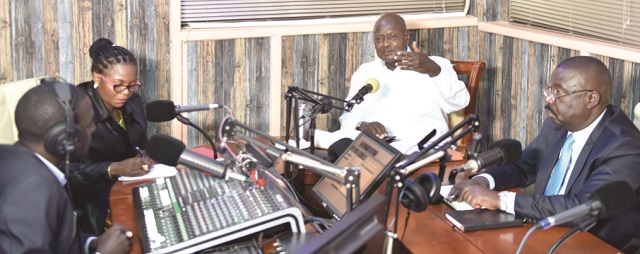
It’s the age limit not land
Part of the frustration among experts could be that nobody really knows why Museveni has undertaken what on face value is a wild goose chase.
Part of the confusion around Museveni’s tour is that most of the infrastructure projects are funded by international financial institutions, including the World Bank and the African Development Bank, which require Resettlement Action Plans (RAPs) and have clear guidelines on compensation of Project Affected Persons (PAPs).
The government is often required to foot the compensation bill as part of its so-called counterpart funding. Many government projects stall because of either delay or failure by the government to put-up the necessary counterpart funding. Although it is often only a small percentage of required monies, the sums are quite substantial.
For example, the planned Kampala-Malaba standard gauge railway project requires the government to fork-out US$345 million. Although that is just 15% of the US$2.5 billion price tag, it is a huge chunk of the national budget. The US$150 million upgrade to tarmac of the Kigumba-Masindi-Hoima-Kabwoya road requires only 4% of the price tag as counterpart funding. But that is Shs12 billion and the government has not fully cleared it.
Over time, therefore, the government has created financing reservoirs called “funds” to cater for counterpart funding needs of different sectors. These include the Road Fund, Energy Fund, Petroleum Fund and others.
However, by June this year, Matia Kasaija, the Minister of Finance confirmed to journalists that the funds “are empty”. It now appears that Museveni is seeking to circumvent this requirement.
In July, the government tabled the Constitution (Amendment) Bill, 2017 seeking to amend Article 26 (2) to allow compulsory acquisition of land by removing hurdles to compensation which it claims have been a major hindrance to infrastructure development.
The Bill seeks to amend Article 26 of the Constitution which provides for the right of citizens to own property and shows how the government can acquire land with fair and adequate compensation.
Earlier, however, Museveni’s critics in civil society, religious bodies and Members of the opposition parties in Parliament claimed he was on ruse to galvanise support for his well-orchestrated ploy to remove the presidential age limit clause from the Constitution.
They pointed at a number of “mini” tours that Museveni went on before he went to the countryside. He visited parts of Wakiso and Kampala districts and, in what has become his usual style, he doled out millions of shillings, first to Katwe Welders’ SACCO in Kampala (Shs 275 million) and Shs.100 million to members of a market SACCO in Zana, a township along Entebbe Road, and another Shs100 million to the Bwebajja Fruits Sellers’ SACCO. In the northern Kampala division of Kawempe, he visited and promised to return and meet them “for development purposes.”
Inflated compensation claims
As he launched his tour with a talk show on Voice of Kigezi in the southwestern town of Kabale, the President told his listeners that amending Article 26 of the 1995 Constitution is not intended to steal people’s land but to speed up government projects that have been stalling as a result of court cases arising from compensation disputes. The next day, Sept. 5, Museveni told the people of Mbarara that his government wants to change the law for public interest.
“We need to construct roads, the railway and electricity,” Museveni told listeners of Vision FM radio in Mbarara.
“When we make the road to Lyantonde or the Bypass here in Mbarara town, Museveni does not have any shares in it. It is for everyone’s benefit,” he said.
Museveni is aware that even when corruption is not directly named, in some cases projects simply fail to take off because of sloppiness of government workers involved, leading to what is technically called poor absorption of funds. In September 2016, the World Bank, which lends Uganda up to US$200 million annually on average, froze further lending to Uganda over low absorption of funds.
He has also mentioned the inflated compensation claims are part of the problems. While in Mubende, he condemned people who make fake and exorbitant claims as compensation for their pieces of land that the government wants to acquire to pave way for infrastructure development programmes.
There is, however, wide disappointment that he has neither named nor acted against any top government official, including within his Cabinet, who have taken huge compensation cheques from the government either personally or through proxies.
Even when Betty Amongi, the Minister of Lands, Housing and Urban Development whose ministry is heavily involved in finding the land for government projects, cited infrastructure projects that she said were running behind schedule and have caused the government astronomical losses due to delayed land compensations to project-affected persons, she appears to have picked the bare bones and not the meat list.
 The Independent Uganda: You get the Truth we Pay the Price
The Independent Uganda: You get the Truth we Pay the Price




Good work done. Thanks